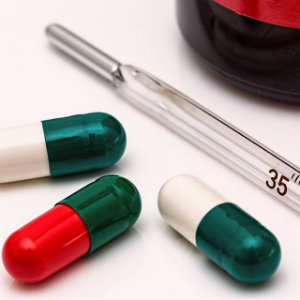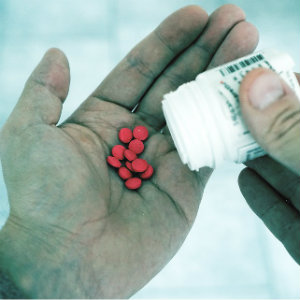You or a loved one has suffered health problems from a defective drug, and you're looking for answers:
- Can I sue the manufacturer of this drug?
- Who else could be held liable?
- What type of lawsuit would I file?
- What kind of damages could I recover?
Our experienced attorneys are here to guide you through this process.
Our seasoned injury attorneys are prepared to take on the drug companies and earn the compensation you deserve.
Big Pharma in the US is one of the most powerful industries on earth, dominating roughly 40% of the global pharmaceutical market (valued at around $413 billion). These industry giants have provided the world with some life-saving drugs, but the price tags are often excessively steep. At the very least, we should expect that these expensive drugs have passed strict tests for safety. But each day, hardworking Americans suffer from health problems due to defective drugs.
When innocent people suffer because of improper drug testing or inadequate warnings for side effects, they need someone to stand up for them. Personal injury lawyers with experience in product liability suits can help these victims receive the compensation they need to recover from their health complications. These claims can be filed both for prescribed and for over-the-counter medications.
What Is Product Liability?
When you buy a product on the open market, you have an expectation that it will be safe and free of potential dangers. Manufacturers, distributors, and businesses owe their customers a legal duty to ensure this safety. When we buy a product, there is an implicit agreement between us and these parties: in exchange for our money, they're providing us with a safe product.
Many of us may take product safety standards for granted. We naturally expect that if a product is readily available on the open market, that it must be safe. But unfortunately, this is not always the case. Sometimes, companies cut corners and rush through the safety inspection process to get a product onto the market sooner. When this happens, innocent people often suffer.
Categories of Defective Drug Product Liability Claims
Product liability claims can be separated into three main categories, which can be further narrowed to specifically apply to defective drugs:
Manufacturing Defects
A drug may cause injuries if it has been improperly manufactured. For example, there could have been a mistake made while the drugs were being bottled or labeled.
Dangerous Side Effects
This type of claim applies when a drug has dangerous side effects which could lead to serious injuries or health problems. Sometimes, the drug may have been available for an extended period before anyone discovered these side effects.
Marketing Inaccuracies
Pharmaceutical drugs are required to have adequate warning labels, instructions, and recommendations for the use of that drug. Failure to provide these precautions can sometimes lead to a patient's injury.
When this happens, manufacturers as well as doctors, pharmacists, pharmaceutical salespeople, and others can be held liable for failing to provide a patient with necessary information.
Each case is unique, and many product liability claims arise from a combination of these categories. For instance, a claim involving dangerous side effects would often also involve a failure to provide proper warnings about these side effects.
FREE CONSULTATION
Who Can Be Held Liable?
Drug companies aren't the only ones who can be held liable for a defective product. By the time you've begun using a drug, that drug has had to pass through several checkpoints. Any party who was partially involved in the distribution of this drug could potentially be held liable for damages, depending on what role they played.
- Manufacturers - The pharmaceutical company may have failed to adequately ensure a drug's safety before it hit the open market.
- Testing Facilities - Laboratories have a duty to provide careful testing of any drugs before they become publicly available. If one of these facilities failed to identify possible dangers, they may be held liable.
- Pharmaceutical Sales Reps - Big Pharma companies usually have an army of sales representatives who travel the country and hawk their products to healthcare professionals. These reps could be held liable if they recommended the dangerous drug which caused your injuries.
- Doctors - Physicians could be held liable for prescribing the defective drug, for failure to warn of side effects, or for failure to provide sufficient instructions for ingesting the drug.
- Healthcare Facilities - Hospitals and clinics could be held liable for their role in the distribution of a defective drug.
- Pharmacies - The pharmacy is the last step in the distribution of a drug. If your pharmacist failed to warn you of side effects or to provide adequate instruction, the pharmacy could potentially be held liable for subsequent injuries.
Your case may involve any combination of these potentially liable parties. A good product liability lawyer will analyze the details of your specific case in order to determine who should be held liable.
Examples of Defective Drugs
Just because a drug has passed FDA standards doesn't mean that its safety is guaranteed. The following drugs have caused health problems for countless victims.
Zofran
Zofran is an anti-nausea drug used by pregnant women during the first trimester of pregnancy. It's intended to treat morning sickness, but it has recently been discovered that the active ingredient in Zofran potentially increases the risk of serious birth defects such as cleft palate and heart defects.
Ironically, this drug was never intended to be used for the treatment of morning sickness in pregnant women. It was originally released in 1991 as a treatment for nausea induced by chemotherapy. However, Zofran allegedly marketed the drug to doctors as a safe morning sickness treatment.
Mothers who were taking this drug during pregnancy and gave birth to a child with serious defects should consider their legal options. This drug was improperly marketed outside of its intended use, and countless mothers and children have suffered as a result.
Xarelto
Xarelto is a popular blood-thinner which has been shown to have extremely dangerous risks. Patients on Xaraleto have experienced the following complications:
- Gastrointestinal bleeding
- Pulmonary embolism
- Brain hemorrhage
- Spinal bleeding
- Liver dysfunction
Manufacturers Bayer Inc and Janssen Pharmaceuticals have faced thousands of lawsuits from patients who have suffered from these complications.
Risperdal
Risperdal is a popular anti-psychotic drug used to treat schizophrenia, bipolar disorder, and autism in children. This drug causes side effects which range from mild to severe:
- Nausea
- Drowsiness
- Weight gain
- Skin rash
- Dry mouth
- Uncontrollable tremors
- Stiff muscles
- Body aches
- Arrhythmia
- Seizures
- Gynecomastia
Thousands of plaintiffs have filed claims against the manufacturer, alleging that they failed to adequately warn of these side effects.
Pradaxa
Pradaxa is another popular blood thinner with dangerous side effects. These side effects range from mild to life-threatening:
- Heartburn
- Stomach aches
- Nausea
- Hematuria
- Migraine headaches
- Joint swelling
- Vomiting
- Bruising
- Dizziness
- Heart attacks
- Excessive bleeding
The manufacturer has faced thousands of claims alleging deceptive marketing, inadequate warnings for risks involved, and a lack of precaution for saving patients who suffer from excessive bleeding.
Should I Consider A Lawsuit?
If you suspect that a defective drug cause injuries or health complications for you or a loved one, don't hesitate to act. The experienced injury lawyers at Monheit Law would be more than happy to hear the details of your case in a free consultation. If you have a viable case, we'll use all of our resources to win a favorable verdict or settlement. There are offices in several locations for your convenience such as our Jenkintown personal injury law office, and Monheit Law serves Philadelphia and areas across the state of Pennsylvania. This all comes at no risk to you - as we only require payment if we win.

